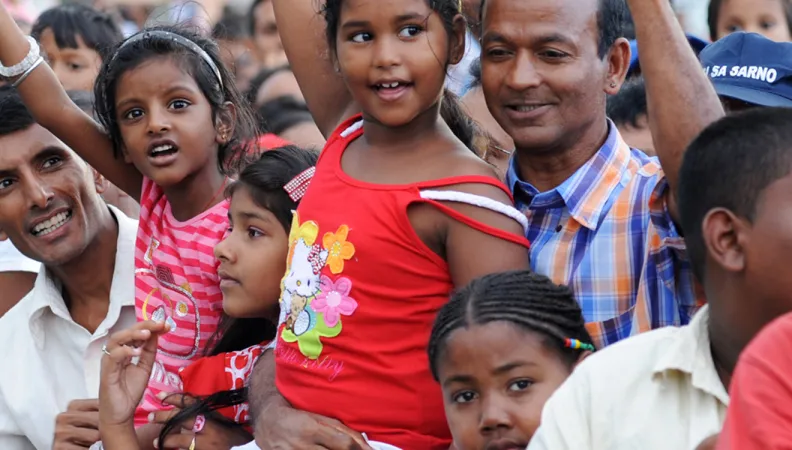Share the page
A Loan Symbolizing France's Commitment to Mauritius
Published on

AFD granted a €300 million contingency loan to the Mauritian government on July 27 as part of the response to the Covid-19 crisis. We look back at the issues at stake in this public policy loan and France's commitment to Mauritius with Emmanuel Cohet, Ambassador to the Republic of Mauritius and André Pouillès-Duplaix, Director of AFD's Mauritius office.nce AFD à Maurice.
What are the impacts of Covid-19 in Mauritius?
Emmanuel Cohet, French Ambassador to Mauritius: The impacts of the Covid-19 crisis in Mauritius have been severe for the island, particularly in a number of economic sectors that are strategic for Mauritius, such as tourism, textiles and a number of services. There is a marked impact of the Covid-19 crisis in this region of the world, and particularly in Mauritius.
André Pouillès-Duplaix, director in Mauritius: This coronavirus pandemic is very different from previous ones. Mauritius is one of the countries most vulnerable to these new types of shocks. There are major impacts on incomes and jobs, which further weakens the most vulnerable populations. This crisis also highlights the fact that Mauritius is highly dependent on food and energy.
What is AFD's response to this unprecedented situation?
A.P-D.: This is the first time in its history that AFD has allocated a contingency loan to the Republic of Mauritius. Let's remember that a contingency loan is first and foremost a public policy loan with a dual benefit: to provide short-term foreign currency liquidity and, in the longer term, to support Mauritius in a programming and technical cooperation framework for a sustainable, resilient and low-carbon economic recovery.
This is to support four sectors: health (mechanisms for alert management and response to emerging and re-emerging diseases), social protection (expanding social coverage and social assistance), gender inequalities (impacts of these inequalities on the Mauritian economy), and the economy through the creation of the Economic Research and Planning Office. The latter provides the Ministry of Finance with analytical capacity for the formulation of public policies and investment plans that are reactive to climate change and natural disasters. AFD's loan will support the formulation and review of Mauritius' long-term adaptation strategy, particularly on issues of vulnerability to climate change.
How does this support illustrate France's commitment to the Republic of Mauritius?
E.C.: This loan illustrates the support that France wants to give to Mauritius in the exceptional and serious circumstances affecting the island. It is a strong gesture of commitment by France to support its Mauritian partner, which is part of a far-reaching and very rich cooperation between the two countries.
The visit of the Minister for Europe and Foreign Affairs, Mr Jean-Yves Le Drian, on February 20, 2020 here in Mauritius, illustrates the solidity of this relationship of friendship and mutual trust. During this visit, the Minister for Europe and Foreign Affairs met with the Mauritian Prime Minister, Pravind Kumar Jugnauth, and launched the French studies network in Mauritius. This initiative is intended to promote and intensify academic and higher education cooperation between the two countries, as well as for the region.
Through AFD, France is very active in the region, in particular as part of the Indian Ocean Commission (COI). Together with its partners, France is working to address a number of major concerns in the region collectively, including climate change, health issues, economic and social development, and digital and employment development.
It is in this context that France's action through this contingency loan should be analyzed, but also in many other areas where Mauritius and France work together as partners in a relationship of friendship and mutual trust.
